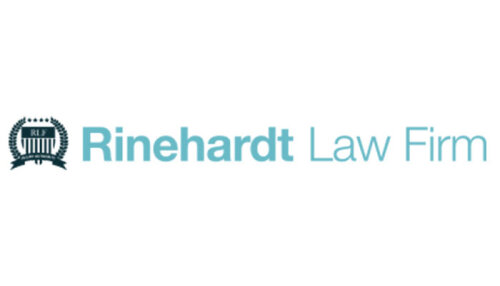Best Dangerous Product Lawyers in Ontario
Share your needs with us, get contacted by law firms.
Free. Takes 2 min.
List of the best lawyers in Ontario, United States
1. About Dangerous Product Law in Ontario, Canada
Dangerous product law in Ontario combines federal and provincial authorities to protect consumers from unsafe goods. The federal framework centers on the Canada Consumer Product Safety Act (CPSA), which gives Health Canada authority to recall dangerous consumer products and set safety standards. Ontario residents also rely on provincial statutes for consumer protections and workplace safety when handling hazardous products in workplaces.
Under Canadian law, a person harmed by a dangerous product can pursue civil remedies such as a product liability claim, often grounded in negligence or misrepresentation. Ontario lawyers (solicitors) advise on whether to pursue recall-related remedies, compensation for injuries, or both. Recent enforcement trends show more proactive recalls and clearer reporting to help consumers recover losses and hold manufacturers accountable.
“The CPSA provides the authority to recall unsafe consumer products and to require corrective measures to protect Canadians.”
References to official sources provide authoritative context for these protections. For more details, consult Health Canada’s consumer product safety information and Ontario’s consumer protection framework on the government websites listed in the Resources section.
2. Why You May Need a Lawyer
Consider these concrete, Ontario-specific scenarios where a dangerous product lawyer can help you evaluate and pursue remedies.
- A child injures themselves on a recalled baby product sold in Ontario, and you must determine liability and eligibility for recall compensation or settlement.
- You suffered chemical burns from a household cleaner that had improper labeling, raising questions about negligence, product warnings, and warranty rights.
- A power tool sold in Ontario malfunctions and causes injury; you need to prove the defect caused the harm and examine potential product liability or warranty claims.
- A medical device implanted or used in Ontario fails, causing complications; you must assess product liability, regulatory action, and whether compensation is available for medical expenses and lost income.
- An Ontario retailer sold you a cosmetic with false or misleading labeling; you want to pursue misrepresentation and potential consumer protection remedies.
- A company withheld recall information in Ontario, and you incurred losses after using the recalled product; you need to determine who bears responsibility and how to recover costs.
These scenarios involve complex evidence, regulatory interplay, and potential class or representative actions. A solicitor can assess the facts, coordinate with Health Canada recalls, and pursue appropriate civil claims in Ontario courts if warranted.
3. Local Laws Overview
The following laws and regulations govern dangerous products in Ontario and at the federal level. They set recall powers, safety standards, and consumer protections applicable to Ontario residents.
- Canada Consumer Product Safety Act (CPSA) - Federal law giving Health Canada authority to recall unsafe consumer products and to set safety requirements. It provides the framework for recalls, corrective actions, and penalties for non-compliance. (Enacted 2010; came into force 2011; ongoing updates). Health Canada CPSA information.
- Hazardous Products Act (HPA) - Federal statute governing hazardous products and their labeling, classification, and warnings, with enforcement mechanisms. This act works alongside CPSA to address dangerous goods in commerce. Justice Laws Website - Hazardous Products Act.
- Ontario Consumer Protection Act, 2002 - Provincial statute addressing deceptive practices, unfair conduct, warranties, refunds, and consumer transactions within Ontario. Ontario e-Laws - Consumer Protection Act, 2002.
The interplay between federal and provincial regimes matters in practice. For workplace safety concerns involving dangerous products, Ontario residents may also rely on the Ontario Occupational Health and Safety Act to address safe handling and exposure risks in workplaces. Ontario e-Laws - Occupational Health and Safety Act.
4. Frequently Asked Questions
What is a dangerous product in Ontario?
A dangerous product is one that presents a risk to health or safety under normal or foreseeable use. Federal CPSA defines unsafe products, and provincial protections cover consumer transactions and workplace safety. A solicitor can help you determine if a product fits this category and what remedies apply.
How do I start a product liability claim in Ontario?
Document injuries, product details, recalls, labeling, and purchase records. Consult a licensed solicitor to evaluate fault, collect evidence, and determine if a civil claim is appropriate. Early legal guidance helps preserve witnesses and documentation.
When can I sue for product injuries in Ontario?
Limitations are governed by the Ontario Limitations Act. In general, you have a two year period from the date you discovered the injury to file a claim, subject to exceptions. A solicitor can explain how the timeline applies to your case.
Where should I report a dangerous product recall in Ontario?
You can report recalls through Health Canada's recall database and provincial consumer protection resources. A solicitor can also help you coordinate recall information with your claim if necessary.
Why might I need a lawyer even if a recall is issued?
Recalls do not automatically compensate victims. A lawyer can assess liability, help recover medical costs, lost wages, and damages for pain and suffering, and determine whether a separate civil claim is appropriate.
Can I pursue both a recall remedy and civil damages?
Yes, in some cases you can pursue both avenues. A solicitor will assess whether the recall remedy is available and whether a civil action for damages is warranted based on fault, injuries, and losses.
Should I hire a local Ontario solicitor or a national firm?
Local counsel with Ontario experience can navigate provincial statutes, court rules, and local procedures more effectively. A regional solicitor may coordinate with national partners if complex regulatory issues arise.
Do I need to pay upfront fees for a dangerous product case?
Many Ontario solicitors offer initial consultations at no charge and work on a contingency basis for personal injury matters. Confirm fee arrangements in writing before proceeding.
Do I need special qualifications to pursue a product liability case?
You should seek a solicitor with experience in product liability, negligence, and consumer protection claims. Complex product cases often involve both factual and regulatory analysis requiring a seasoned advocate.
What is the difference between a recall and a civil lawsuit?
A recall is a regulatory action to remove or fix a dangerous product. A civil lawsuit seeks compensation for injuries or losses caused by the product, potentially including damages beyond recall obligations.
Is there a time limit to pursue a claim after a recall?
Claim timelines vary by claim type and jurisdiction. In Ontario, most personal injury claims fall under a two year discovery rule, but exceptions apply. A solicitor can review your specific facts and deadlines.
5. Additional Resources
- Health Canada - Official federal resource on consumer product safety, recalls, and safety alerts. Functions include issuing recalls and disseminating safety notices to protect Canadians. health-canada.gc.ca
- Ontario e-Laws - Official Ontario statutes, including the Consumer Protection Act, 2002 and the Occupational Health and Safety Act, with current consolidated text and amendment history. ontario.ca/laws
- Justice Laws Website - Federal and provincial statutes including the Hazardous Products Act and related regulations, with updated statutory text. laws-lois.justice.gc.ca
6. Next Steps
- Collect all evidence related to the product, including purchase receipts, packaging, labeling, user manuals, injury reports, and any recall notices.
- Identify potential defendants such as manufacturers, retailers, or distributors and note dates of purchase and injury occurrences.
- Consult a Ontario solicitor who specializes in product liability and consumer protection to assess your options and potential remedies.
- Schedule a formal assessment to determine whether recall remedies, warranty claims, or civil liability are viable.
- Preserve the product and any related documentation to avoid spoliation risks that could affect your case.
- Ask about fee arrangements and whether the firm offers a free initial consultation or contingency-based representation.
- Prepare a timeline with deadlines for claims, recalls, and potential court actions to avoid missing critical dates.
Lawzana helps you find the best lawyers and law firms in Ontario through a curated and pre-screened list of qualified legal professionals. Our platform offers rankings and detailed profiles of attorneys and law firms, allowing you to compare based on practice areas, including Dangerous Product, experience, and client feedback.
Each profile includes a description of the firm's areas of practice, client reviews, team members and partners, year of establishment, spoken languages, office locations, contact information, social media presence, and any published articles or resources. Most firms on our platform speak English and are experienced in both local and international legal matters.
Get a quote from top-rated law firms in Ontario, United States — quickly, securely, and without unnecessary hassle.
Disclaimer:
The information provided on this page is for general informational purposes only and does not constitute legal advice. While we strive to ensure the accuracy and relevance of the content, legal information may change over time, and interpretations of the law can vary. You should always consult with a qualified legal professional for advice specific to your situation.
We disclaim all liability for actions taken or not taken based on the content of this page. If you believe any information is incorrect or outdated, please contact us, and we will review and update it where appropriate.










